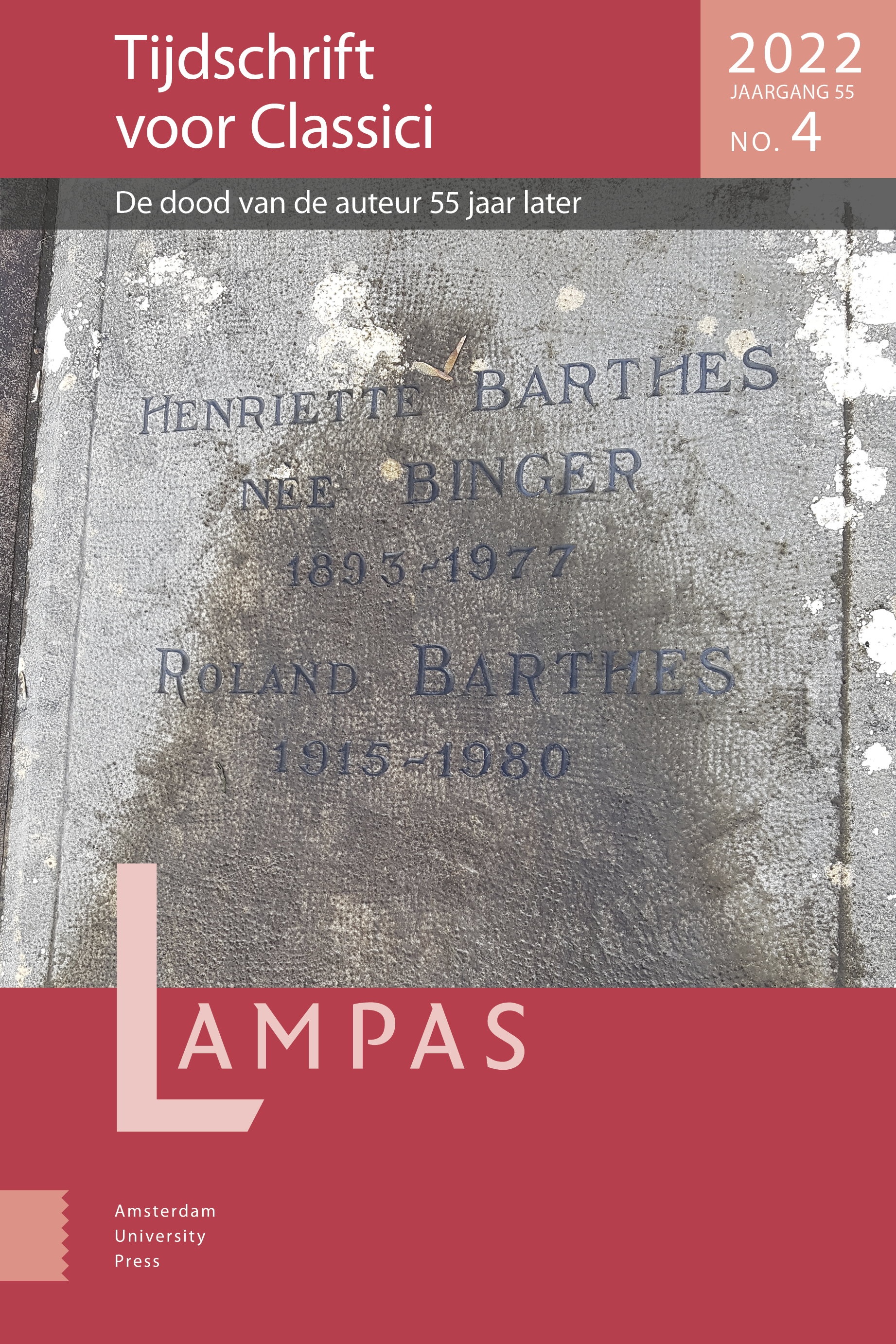-
oa Ferrante en Vergilius
Het voordeel van een verborgen auteur
- Amsterdam University Press
- Source: Lampas, Volume 55, Issue 4, Nov 2022, p. 422 - 439
-
- 01 Nov 2022
Abstract
In this contribution I study Elena Ferrante’s My Brilliant Friend novels. I link Ferrante’s own pseudonymity with the way in which the classical author Vergil is represented in the series. An important theme in the novels is the appropriation of a female subjectivity by male authors. This theme features most prominently in the relation between Vergil and Queen Dido. Dido is a Leitmotif in Ferrante’s tetralogy: she is both a role model and an anti-model for the female protagonists, and the unconventional reading they give to her plays an important part throughout. Remarkably enough, Vergil is never mentioned as Dido’s ‘author’ whenever the protagonists discuss Dido. My suggestion is that Ferrante thus indicates that a text can only ever be open to interpretation once the author is ‘absent’ (or dead, in Barthes’ terms). Paradoxically, Vergil is precisely that, because he is such a classic: his text has become a reality on its own. This interpretation finds confirmation in the fact that Vergil does in fact occur in the novels, but only in the guise of Vergilius magus (the magician) of medieval legends. This shows that ‘biographical’ stories about authors do not necessarily have any relation to their work, nor help to interpret them: hence Ferrante’s own choice to be an absent author.


